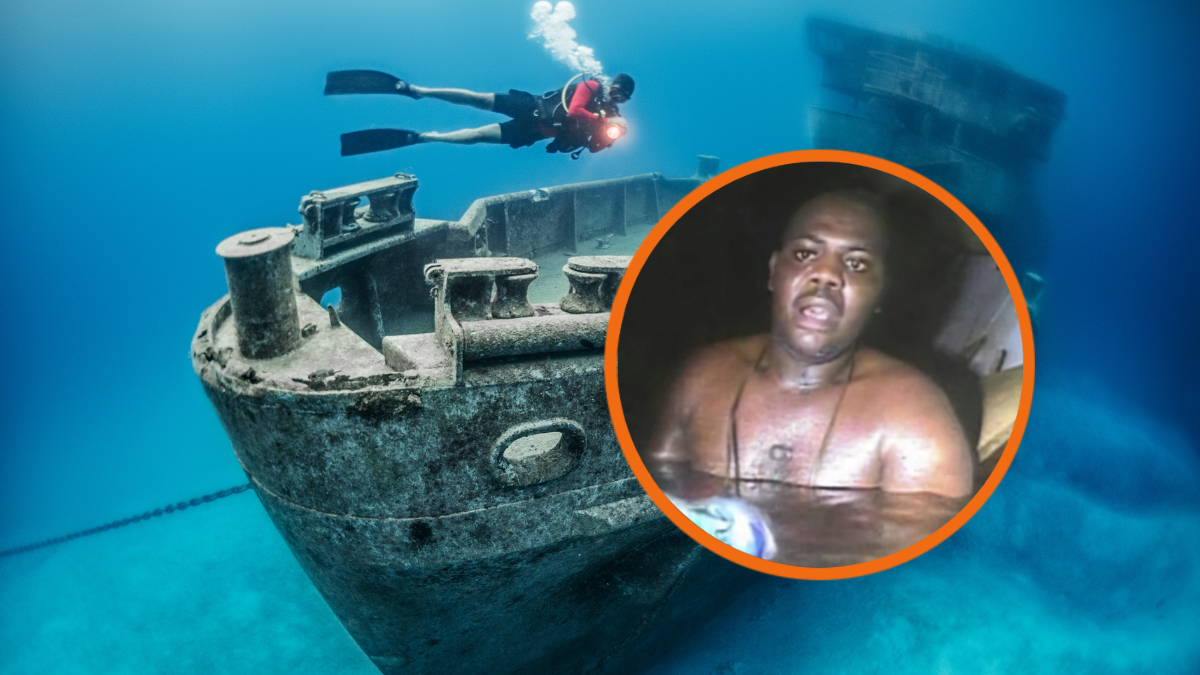
Being trapped inside a sinking ship is every sailor’s worst fear. After all, you might be rescued floating on the surface after a shipwreck, but being locked inside a cabin slowly filling with seawater and knowing death by drowning is imminent must be truly horrifying.
Such was the fate of the crew of the Jascon-4, a tugboat working off the coast of Nigeria in 2013. They were towing an oil tanker when disaster struck as a sudden swell or rogue wave capsized the vessel and sent it plummeting to the ocean floor.
Local pirate activity meant that standard procedure was for crew members to lock themselves inside their cabins at night. But this only sealed their fate, leaving no way for them to escape a watery grave.
Almost three days after the wreck, a South African diving crew arrived at the scene for the grisly clean-up operation and descended to the inky depths to bring the bodies to the surface. Video footage captures the moment one of them spots a hand floating in the water. They reach out to retrieve the corpse… only for it to grab their hand! “He’s alive! He’s alive!” they yell in disbelief.
“I was crying and calling on Jesus to rescue me”
This was the ship’s cook, Harrison Odjegba Okene. He was trapped inside the ship along with the rest of the crew, but had miraculously managed to find a 4ft sq air pocket within the wreck. In complete darkness, half-submerged in freezing ocean water, surrounded by the bodies of his crewmates, he’d waited for almost three days.
As Okene explained:
“It was around 5 am and I was on the toilet when the vessel just started going down – the speed was so, so fast. … All around me was just black and noisy. I was crying and calling on Jesus to rescue me. I prayed so hard. … I told myself, instead of panicking, you have to think of a way out. The air couldn’t go out of the boat completely. Some had to be trapped inside.”
Even after being found, Okene wasn’t safe. After so long beneath the ocean, he was in danger of nitrogen poisoning. The divers carefully strapped him into diving equipment, slowly brought him to the surface, and transferred him to a decompression chamber. Two days later, he emerged, having escaped death by the thinnest of margins.
Okene understandably swore he’d never go near the ocean again in his life. But, in an inspiring twist, he overcame his fear and began training as a commercial diver, inspired by the men who’d pulled him out of the wreckage. He qualified, and the diver who reached out to a corpse and found a survivor walked up on stage to present him with his diploma.







